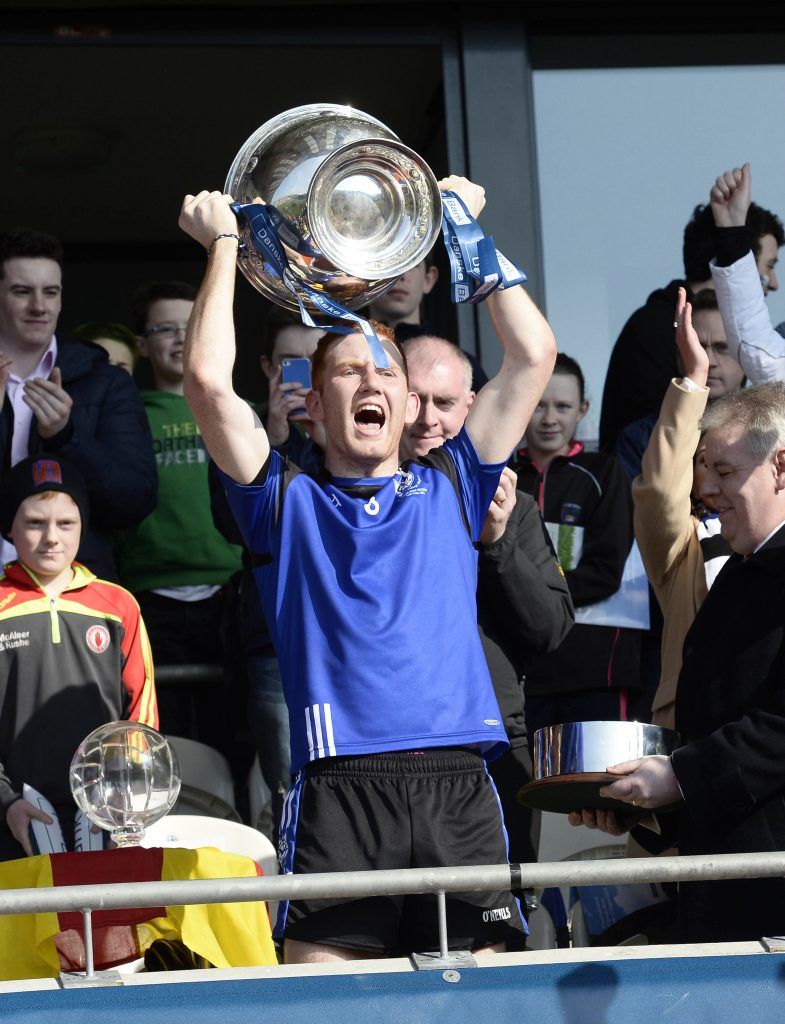

Share
11th November 2016
05:45pm GMT


 Along with current players like Tuohy, Pearce Hanley and Ciaran Sheehan, this trio bring to 50 the number of GAA players to sign professional terms with AFL clubs.
This week Kerry star Killian Young said what a lot of Gaels are thinking.
Along with current players like Tuohy, Pearce Hanley and Ciaran Sheehan, this trio bring to 50 the number of GAA players to sign professional terms with AFL clubs.
This week Kerry star Killian Young said what a lot of Gaels are thinking.
“What worries me in one sense is that we’re after winning a three-in-a-row in the minors, developing top-quality players who are coming through, and the fear I have is that [AFL clubs] are all looking at our players,” he told Radio Kerry’s Terrace Talk. “What’s the point of us developing top-class players in this county if they’re all going to go away to Australia on professional contracts? “So, we really have to find a way to protect our players for Kerry’s future, for us to be winning All-Irelands, [otherwise] there’s no point us bringing through players in these top-class programmes at youth level. It’s a frustration for me."If Young's frustration is obvious, the solution is not. You cannot stop a young man from following his dreams of a professional sporting career in Australia, anymore than you can stop the likes of Johnny Glynn and Jamie Clarke from choosing to live in New York, or prevent Darren Sweetnam (below) from pursuing a career in professional rugby.
 Australian Rules Football is a viable career path for a small percentage of young Gaelic footballers. The quantity leaving the GAA will never be a major headache but the quality can have a massive impact on individual counties.
Derry are not exactly pulling up trees at senior level these days and, who knows, perhaps Conor Glass would be the player to tip the scales against Tyrone in next summer's Ulster SFC opener.
Similarly Meath are not so weighed down with talent that they can easily afford to lose someone of Nash's quality.
You cannot stop players from leaving but you can be compensated for their loss. Consider all the man hours spent coaching the likes of O'Connor, from the moment he set foot in the gates of Dingle GAA club, all the development squads he was part of and all the transport, food and equipment costs racked up by club and county in the development of this prime athlete that was chased by three AFL clubs.
Junior soccer clubs, run on an amateur basis, benefit monetarily from the transfer of young prospects to professional clubs in the UK, even if it is often a pittance - why should the same system not exist between GAA club members and professional Aussie Rules clubs?
It may not stem the flow, but it might make us all feel a little bit better about it.
Brought to you by AIB, proudly backing Club & County. Follow AIB GAA on Twitter, Instagram and Facebook.
Australian Rules Football is a viable career path for a small percentage of young Gaelic footballers. The quantity leaving the GAA will never be a major headache but the quality can have a massive impact on individual counties.
Derry are not exactly pulling up trees at senior level these days and, who knows, perhaps Conor Glass would be the player to tip the scales against Tyrone in next summer's Ulster SFC opener.
Similarly Meath are not so weighed down with talent that they can easily afford to lose someone of Nash's quality.
You cannot stop players from leaving but you can be compensated for their loss. Consider all the man hours spent coaching the likes of O'Connor, from the moment he set foot in the gates of Dingle GAA club, all the development squads he was part of and all the transport, food and equipment costs racked up by club and county in the development of this prime athlete that was chased by three AFL clubs.
Junior soccer clubs, run on an amateur basis, benefit monetarily from the transfer of young prospects to professional clubs in the UK, even if it is often a pittance - why should the same system not exist between GAA club members and professional Aussie Rules clubs?
It may not stem the flow, but it might make us all feel a little bit better about it.
Brought to you by AIB, proudly backing Club & County. Follow AIB GAA on Twitter, Instagram and Facebook.